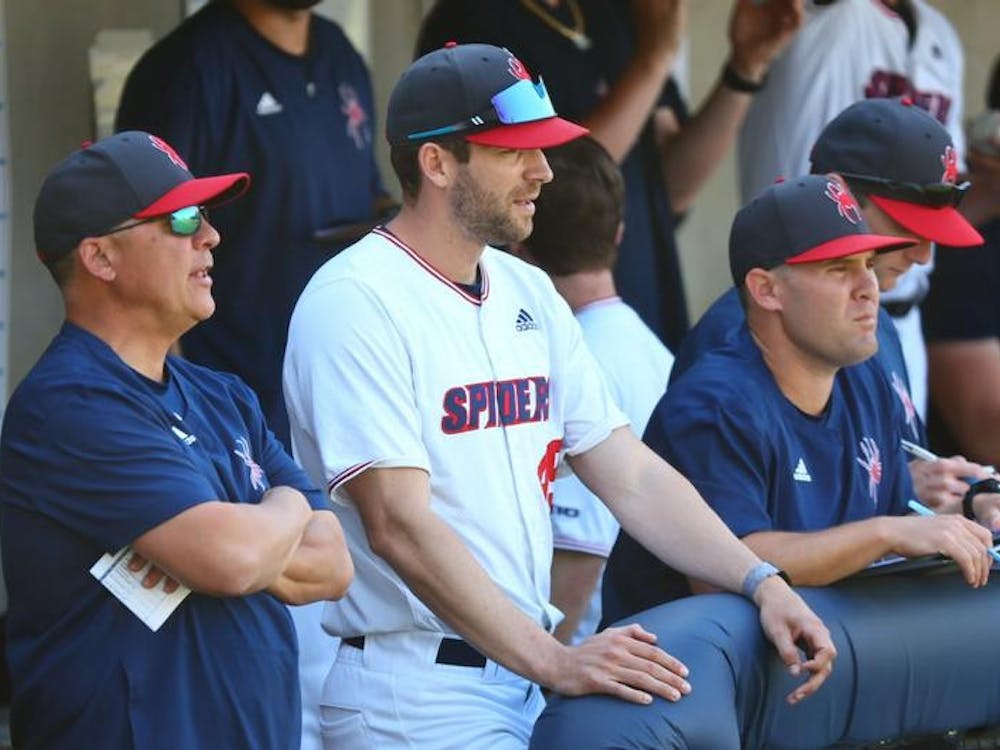Tuesday at the University of Richmond's Sharp Viewpoint Series, Jose Antonio Vargas bluntly confronted immigration in front of a sold-out crowd.
Vargas is a successful journalist, acclaimed filmmaker, Pulitzer Prize recipient and immigration activist. He is also an undocumented immigrant.
Vargas discussed immigration policy in the U.S. with personal anecdotes and supporting statistics.
In 2011, Vargas wrote a 4,000-word essay in which he “came out” as an undocumented immigrant. The essay detailed Vargas's life story, beginning in 1993. That year, 12-year-old Vargas boarded a plane from the Philippines to the United States.
“My earliest memory [of America] was the National Anthem,” Vargas said. “I thought it said, ‘Oh Jose, can you see?’”
What he had perceived as a friendly welcome was gradually replaced by confusion, frustration and curiosity as he defined his identity as an American without legal documents, Vargas said during the talk.
“When I was 16, like any 16-year-old, I went to the DMV to get a driver’s license, and that’s how I found out that the green card that my grandparents had given me was fake,” Vargas said.
Vargas said he carried the weight of secrecy as he climbed the professional ladder. He used a license issued in Oregon to secure an internship with The Washington Post after high school graduation. That license offered him eight years of unexpired documentation to build his career.
Journalistic success came with the promise of a byline, which, to a 17-year-old Vargas, was enough ground to stand on to become a citizen.
“If I can’t be here because I’m here illegally, what if my name was on a piece of paper?” Vargas said. “So, I thought, why don’t I just write my way into America?”
This plan to become a citizen set Vargas on a path of professional and journalistic achievement. He explored filmmaking, found work as a political reporter and won the 2008 Pulitzer Prize for his coverage of the Virginia Tech shooting.
“I’m still resisting, living through the most anti-immigrant climate in modern American history," Vargas, after six and a half years of being a public undocumented worker, said to the crowd.
Enjoy what you're reading?
Signup for our newsletter
Changing perceptions of immigration and the American identity “is going to take a generational cleansing, and I think it has to start in college if not sooner than that," Vargas said in an exclusive interview with The Collegian before the event. “We have so dehumanized the whole issue and made it political and made it just about policy that I think we’ve forgotten the complex humanity of the whole thing."
Vargas created the non-profit organization Define American. A Define American chapter at the University of Richmond, Vargas said, could start with a group of students simply investigating their own immigrant backgrounds.
“I first saw Jose Antonio Vargas on Rachel Maddow’s show around 2012,” Luis Parrales, senior, said. “I was particularly struck tonight by his comments on the need to work with Republicans and the importance of not letting immigration reform get stuck in the left-right divide.”
Vargas also explained how early immigrants morphed into what is now called "white." Harper Robinson, senior, said she had been intrigued by Vargas’s examination of “whiteness” during Tuesday's presentation.
“[Vargas] mentioned that immigrants from France, Canada or Ireland do not face the same backlash as those from Mexico, China or the Philippines, simply because of the way they look,” Robinson said. “Why should the color of one’s skin determine their belongingness in this country?”
The importance of personal history, sacrifice and payment were consistent themes during Vargas's presentation, and he said facing those histories is the first step in redefining the immigration issue.
“Our destinies are tied to each other," Vargas said, "and so we can’t be a citizen of this country, whether or not you’re here legally or illegally, unless we realize that we actually have a stake in each other’s lives.”
Contact managing editor Liza David at elizabeth.david@richmond.edu.
Support independent student media
You can make a tax-deductible donation by clicking the button below, which takes you to our secure PayPal account. The page is set up to receive contributions in whatever amount you designate. We look forward to using the money we raise to further our mission of providing honest and accurate information to students, faculty, staff, alumni and others in the general public.
Donate Now



